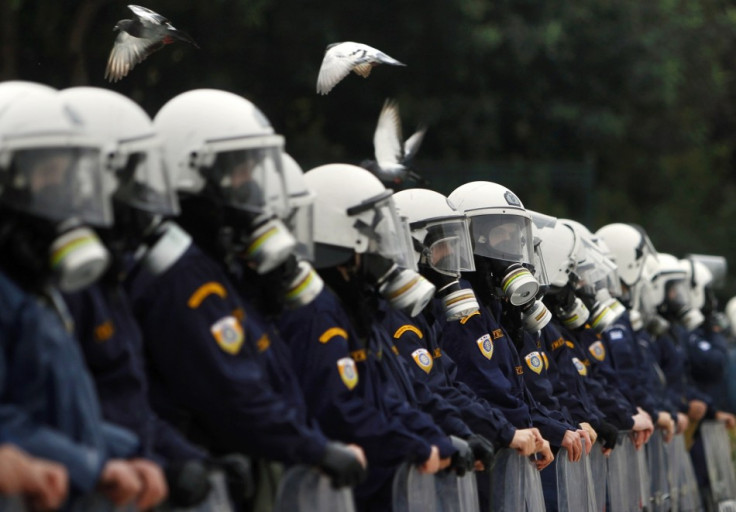Rich Greeks to 'Lease' Police Protection as Austerity Spurs Crime Wave

Wealthy Greeks who are likely targets of criminals and terrorists will have to pay for their own police protection under new cost-cutting plans proposed by the country's cash-strapped government.
Public Order Minister Nikos Dendias said Greeks earning more than €100,000 (£87,000) will have to pay up to €2,000 a month for each policeman they need as an escort.
The plan, which is yet to be approved by the finance ministry, also lists a number of extra fees individuals might be requested to pay according to the level of security desired.
A patrol car is to cost €50 a day; a helicopter is priced at €1,500 and a dog unit will come at €50.
Those 'hiring' a policeman will also have to pay for travel expenses, and damages to police equipment deemed the client's fault.
Only private citizens are subject to the pay-for-protection scheme, as elected officials or public sector executives will keep on enjoying tax-free security.
Not everyone will be entitled to hire a policeman but only those who have been assessed by authorities as in need of protection.
Four percent of the money collected is to be poured into the Greek police retirement fund.
Plans to relocate some of the 4,200 officers currently tasked with personal protection operations were first announced in May.
Dendias said it wanted at least some 1,500 policemen, 100 patrol cars and 60 motorcycles to be put back on the streets as part of general security patrols.
"They will stop guarding special targets and will be thrown into the fight against crime, the fight for the safety of Greek citizens," Dendias was quoted as saying by newspaper, the Greek Reporter.
Criminologist Stratos Georgoulas, from the University of the Aegean, said the proposal is in line with Samaras' government "neoliberal policy", according to which "All human rights (health, education, security) are goods for sale and we should apply laws to enable the private sector to have a say in it".
However the measure is to be welcomed by part of the population, Georgoulas said. The widespread use of police escorts by the wealthy is perceived as the result of corruption and malpractice in the public administration and a waste of taxpayers' money.
"There are very rich people in Greece who use police force as their security, without the public to know the reason why and who they are," Georgoulas said.
"Due to the financial problems we are facing, there is strong opposition inside the Police Force against this use, and that is why the government decide to sell this right."
Bailed-out Greece is going through a sixth year of recession and is the worst-hit country in the eurozone, following the sovereign debt crisis in 2010.
The scheme is part of austerity measures the Government, led by prime minster Antonis Samaras, is implementing to pay off rescue lenders.
While the country has secured tranches of much-needed cash it has to continually prove it is able to manage its debt by slashing public sector spending while raising taxes, under the bailout conditions with its creditors.
However, Greece is also facing a rise in criminality and politically-motivated attacks due to the crisis.
High levels of unemployment have fuelled street criminality, while anger at the economic situation has helped the popularity of both far-right and far-left groups.
A report by the Council of Europe blamed the extremist party Golden Dawn for a steep increase in hate crimes and violence against migrants in Greece.
In January, a gunman opened fire with a Kalashnikov rifle on the headquarters of Greece's ruling centre-right New Democracy party in Athens.
The same month two Greek anarchist groups claimed responsibility for an explosion at an Athens shopping centre that fuelled fears of rising political violence.
That incident followed a series of small homemade bomb attacks on journalists and political figures.
© Copyright IBTimes 2025. All rights reserved.




















